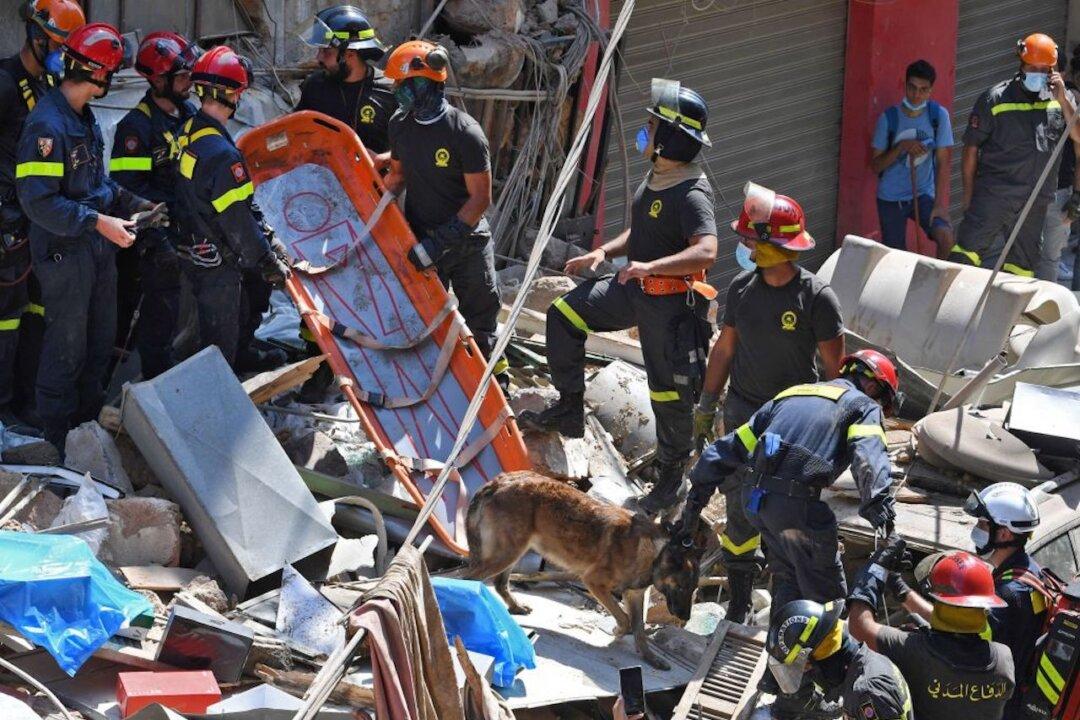The United States is sending food, water, and medical supplies to Beirut after a massive blast at a port killed 154 people and injured 5,000.
“Under the direction of President Donald J. Trump, the United States is delivering critical emergency aid to Lebanon following Tuesday’s horrific event in Beirut,” national security adviser Robert O'Brien said in a statement.





